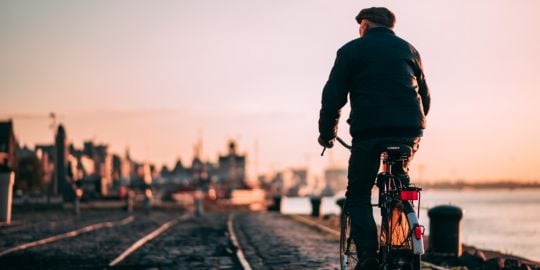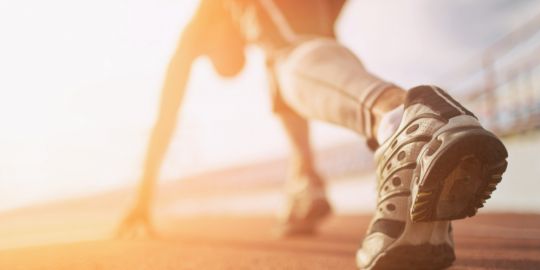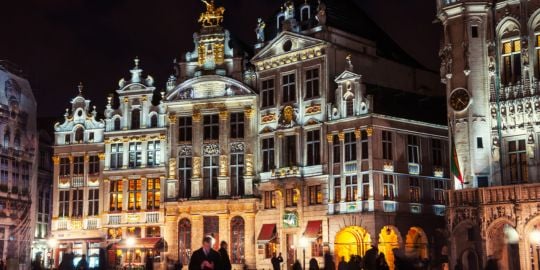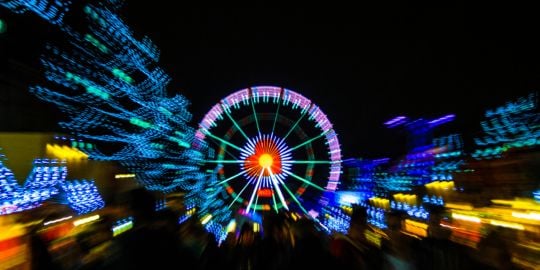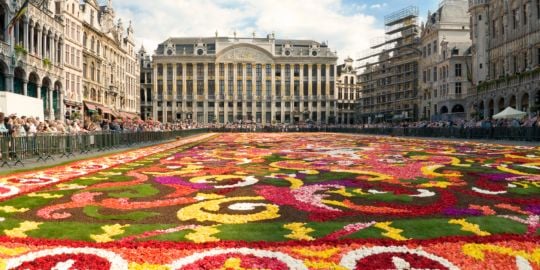Hello everybody,
Dealing with unexpected situations abroad can be a very difficult matter. In order to better help expats and soon-to-be expats in Belgium face such tricky situations, we invite you to share your advice and experience.
What are the key emergency numbers you should know by heart?
In the event of a legal problem, an accident, a natural disaster, an injury or the death of a close family member, what are the first things to do in Belgium?
What are the things to plan ahead in order to better cope with such unexpected situations (registration at the Embassy, transport, medical, comprehensive insurance for instance)?
If you have gone through such experiences in Belgium, do not hesitate to share your story.
Thank you in advance!
Priscilla
Dealing with emergency situations in Belgium
medical aid and fire --> 100
Police Help --> 101
Red Cross --> 105
SOS by Mobile phone --> 112 (Free)
Poison Centre (24/24 advice and information in case of poisoning) -->
070 245 245 (Free)
Info-Drugs (24/24) --> 02 227 52 52
AIDS info Help --> 0800 20 120 (free)
Cancerphone (Belgian Federation against Cancer - Monday from 9:00 to 19:00 and Tuesday to Friday from 9:00 to 13:00) --> 0800 15 800 (free)
Children listening (listening Children of the French community of Belgium) --> 103
Listening to lonely (Problems? Difficulties in life? Like to talk to someone?) Tele-Home listening day and night in anonymity --> 107
Child Focus (European Centre for Missing and Sexually Exploited Children) --> 110
Suicide Prevention (24h / 24, in anonymity) Free call --> 0800 32 123
S.O.S. Rape (Wiretapping anonymous, counseling for victims and their families, support groups available to victims and training courses for professionals Monday to Friday from 9:30 to 17:30.) --> 02 534 36 36
Listening to Young (studies, family, drugs, AIDS, abuse, unemployment, loneliness A talk 24/24) --> 078 15 44 22
Fire, Police, Ambulance, they are all one single number. 112.
112 is intended to be used:
- For any emergency requiring an ambulance, the fire service or the police when you are traveling in a European country,
- By foreign travelers who do not know the emergency numbers in Belgium
- By users of a mobile phone.
However, other numbers are to be used to directly obtain the emergency service adapted to the situation.
112 is taught to Belgian school children and is taught in all Belgian Red Cross first aid courses. It is the number taught now throughout Belgium for Police, Fire and Rescue and Ambulance. Feel free to ignore the advice and learn instead several other numbers, all of which end up back at 112.
In my humble research, I see it is actually the other way around. 112 is a one stop shop (of course you can call this for anything and it is the most easy first point of contact.).
But that doesn't make previous statements (about 100/101/105) wrong. They are correct too.
When you call 112, they speak to you and redirect the call to 100 or 101 or 105 as per the need/situation that they understand based on the conversation with you.
Refer:
http://www.112.be/en/
<quote> When you call the emergency number 112 in Belgium for the police, you are redirected to the emergency number 101. Because of this, valuable time may be wasted. We therefore advise you to directly call the emergency number 101 for urgent police assistance.
</quote>
The reason the single number is taught in schools and on all First Aid courses and is now stressed is because having 3 separate numbers means a huge number of people fail under stress to choose the correct one of those 3 numbers, so now it's just one number which is taught and it is EU wide and it's that alone which works from a mobile phone which has no signal - none of the other 3 numbers work unless there is a signal. Given all this, it's pretty important to get people to use just the 112 number because in fact statistically it gets people through to the emergency services quicker than all the wrong phone calls on the other 3 numbers and gets people through on a mobile phone and these days, most calls to emergency services are made from mobiles!!! It really is very important to get used to that single number.
That is totally correct.
I just quoted from official SOS website just to say that 100/101 can also be called, 112 being the best and first point of contact.
tervurener wrote:and it is EU wide and it's that alone which works from a mobile phone which has no signal - none of the other 3 numbers work unless there is a signal.
I believe it is any GSM standard phone without a sim card, but you still need to be within range of any local network to get signal to call 112, with or without sim. All other numbers require a working local or foreign sim that roams.
Americans / Canadians and other countries that use the CDMA cellular standard (with non-removable sim) need to have dual/tri-band phones to able to call 112, with or without a sim.
You're right.
I asked the Red Cross person who trained me last how on earth phones work without sims or if you have no credit and cannot make normal calls. What I meant was the other 3 number won't work without a sim. That is what the Red Cross guy said. I haven't tried it out. And he said that 112 works because it is the law in the EU that the networks must allow the call do go through even with the weakest signal when a normal call will not go through with a network signal not strong enough.
The Red cross guy also recommended ICE in a mobile phone "IN CASE of EMERGENCY" so anyone finding a mobile phone next to a victim can look in contacts and phone the nearest relative or friend to contact. I know a someone in the March attacks who'd done just that.

